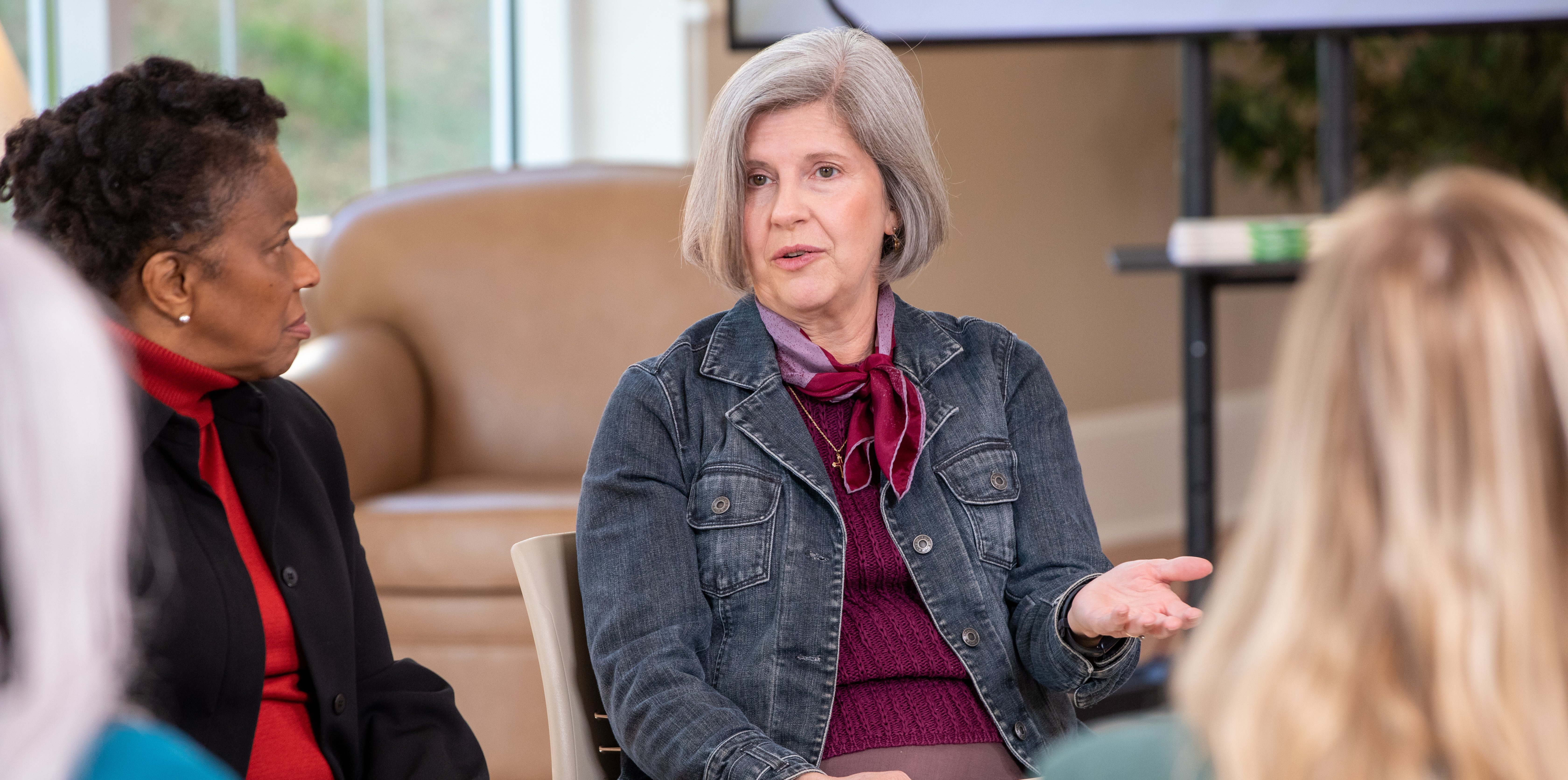What to Do When Discussions Veer Off Course

We’ve all been there. You are trying to lead a discussion and people keep going off on rabbit trails. It can be confusing and leave you wondering “How am I going to get this back on track?” Or maybe you’re thinking, “At least people are sharing. Maybe I should just let the conversation run.”
The suggestions in this article will help you find a good balance and gently guide your GriefShare group back on track when discussions go too far off topic.
Is it really that important to stay on topic?
GriefShare is designed to be a safe place where grieving people can process their hurt and emotions. Each session is designed with specific goals and themes in mind. So when participants generally stay on topic, they are more likely to experience the healing benefits intended for that particular session.
At the same time, grief is deeply personal, and it’s natural for conversations to drift. Participants might want to share meaningful stories, even though they might not directly relate to the topic at hand. Others might bring up unrelated issues to deflect away from a difficult emotion that the current discussion might be triggering.
Keeping the group focused isn’t about shutting down these important expressions; it’s about gently guiding the conversation in a way that respects the structure of the program while honoring each participant’s need to share.
5 strategies to gently steer the conversation
- Acknowledge and validate
When someone starts to veer off topic, the first step is to acknowledge their feelings and validate their experience. You don’t want to dismiss someone’s response, especially since it is coming from an emotional place. You could say something like “Thank you for sharing that. It sounds like a very difficult situation.” This shows that you’re listening and that their emotions are important. - Invite them to share more after the session
Sometimes a participant takes the group off topic for an extended time, but you recognize that this is something valuable for that person to work through or it’s clearly important to that individual. In this instance, you could say, “What you are going through is important, and I’d love to talk more about it after the session.”
Or, if you have a co-facilitator, this is a perfect time for that person to take the grieving person aside to talk more in private. (Having at least two facilitators in your GriefShare program is beneficial to both leaders and participants. See How Many Facilitators Does My Group Need?) - Use open-ended questions
Open-ended questions can be a powerful tool for redirecting the conversation. If someone is sharing something that’s slightly off-topic, you can ask a question that ties their experience back to the session’s focus. For example, “How has this experience impacted your grief journey?” or “How does this relate to what we discussed earlier?” - Set clear expectations
At the beginning of each session, remind the group of the importance of staying on topic and how it contributes to everyone’s healing process. This can set the tone for the meeting and make it easier to gently steer conversations if needed. You can do this when you review your Group Guidelines at the beginning of your sessions or whenever newcomers join the group. - Let other participants step in
Sometimes other participants will naturally help guide the conversation back on track. Let it happen (as long as the others are being kind and respectful about it)! The more the participants engage, the better. It can also help your participants get more comfortable with each other and share more.
Are there times when you can let discussion flow?
Yes! Staying on topic is important, but so is flexibility. Grief looks different for everyone, and there may be times when participants need to untangle their emotions and experiences to fully process their grief. As a GriefShare leader, use discernment to know when you should gently steer discussion back to the topic or allow it to run its course.
You can confidently lead meaningful discussion

Getting off topic is natural, especially when dealing with the complex emotions of grief. Remember, your role as a GriefShare leader is not to control the conversation, but to create a safe place for grieving people to share and process their experience. By having grace and using the strategies in this article, you can create a safe place for your participants to share while keeping discussion on track.
For more tips and strategies, see How to Handle Challenging Group Members and When Your Group Has a Talker (or Two) (LeaderZone login required).


